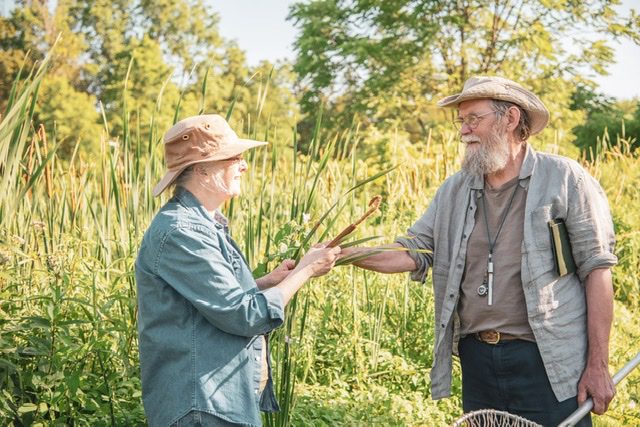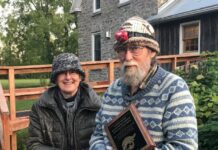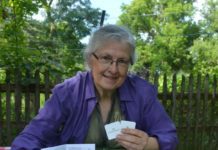A local husband-and-wife team have been awarded a national prize for over 40 years of conservation collaboration and accomplishments. Fred Schueler and Aleta Karstad are the recipients of this year’s Glen Davis Conservation Leadership Prize. In its 4th year, the award honours the late Toronto-based conservation philanthropist, Glen Davis, who died tragically in 2007. Presented by WWF-Canada and the Canadian Parks and Wilderness Society (CPAWS), the prize awards $10,000 to individuals who have played a key role in bringing meaningful protections to identifiable land or aquatic ecosystems, or led to a foundational initiative regarding species or spaces in Canada.
Fred and Aleta have been dedicated biologists and naturalists for decades, and their work has led to the protection of many species and ecosystems at risk across Canada. As a naturalist, Fred is the longest-serving research associate of the Canadian Museum of Nature, and his work has focused on monitoring the abundance and distribution of native and invasive species in Canada. Ever by his side, Aleta is known for her work as an award-winning biological illustrator, natural history artist and author. She is also a well-known Canadian painter, specialising in recording biodiversity and nature.
In 2009, Fred and Aleta directed the Thirty Years Later Expedition project where they revisited previously observed sites to document the conditions of plants and animals and contribute new valuable data to the Canadian Museum of Nature database.
“This year’s Glen Davis winners are two real Canadian conservation heroes. This is truly a dynamic duo who have made a quiet but huge difference for nature in Canada,” says Monte Hummel, President Emeritus of WWF-Canada, one of the administrators of the prize. Sandra Schwartz, national executive director of CPAWS, says: “Their enormous contributions have made a difference for nature protection in Canada.”
The pair show dedication to their work daily by continuously documenting the natural world surrounding their home in Bishops Mills and in their travels across Canada. Their work has been integral in documenting and addressing the spread of invasive species, including the tall grass-like Phragmites and Zebra Mussels. They have also been keeping tabs on many other species, including the Chorus Frog, which has seen a huge decline in population locally, and the Leopard Frog, which Fred has been studying since he did his thesis in late 1970s.
Fred has been gradually transferring decades of field notes into a database, which he hopes will help future biologists track how different species of flora and fauna and their habitats change over time. This work is a passion project for Aleta and Fred, as it is largely volunteer based. “It is a labour of love,” Aleta says.
Fred and Aleta are independent naturalists, as they don’t work directly for the government or any other large organization. Although this comes with its financial challenges, it does allow them to be extremely flexible about what they study. “Nature is our director,” Fred says. “We are directed by the needs around us and our environment.” Over the years, they have figured out what times of the year, and types of weather conditions, are conducive to observing certain species and carrying out field work. On a summer’s evening you can often find Fred “doing the streets”, looking for roadkill which is an indicator of species migration and presence in an area. Every Friday night during the winter they can be found documenting the Mudpuppy population in Oxford Mills, inviting interested locals to tag along to learn more about this giant aquatic salamander and its habitat.
The couple found out a couple weeks ago that they were this year’s recipients of the National Conservation prize. They had been nominated by many of their friends and colleagues who wanted to see them recognized for their years of dedication to the conservation of the natural world. They were chosen unanimously out of the 45 other nominees, and they are the first couple to ever win the prize as a pair.
“There is a larger community of people appreciating us than we thought we had,” Aleta says.
Their plan is to use the prize money to bring their database, with decades-worth of information, online so that it can be accessed easily by biologists across the globe. They are also hoping the prize will allow them to collaborate with people in the field and continue to spread awareness of their work. “We feel so heard, seen and loved,” Aleta says. “That means a whole lot to us.”










Well deserved.